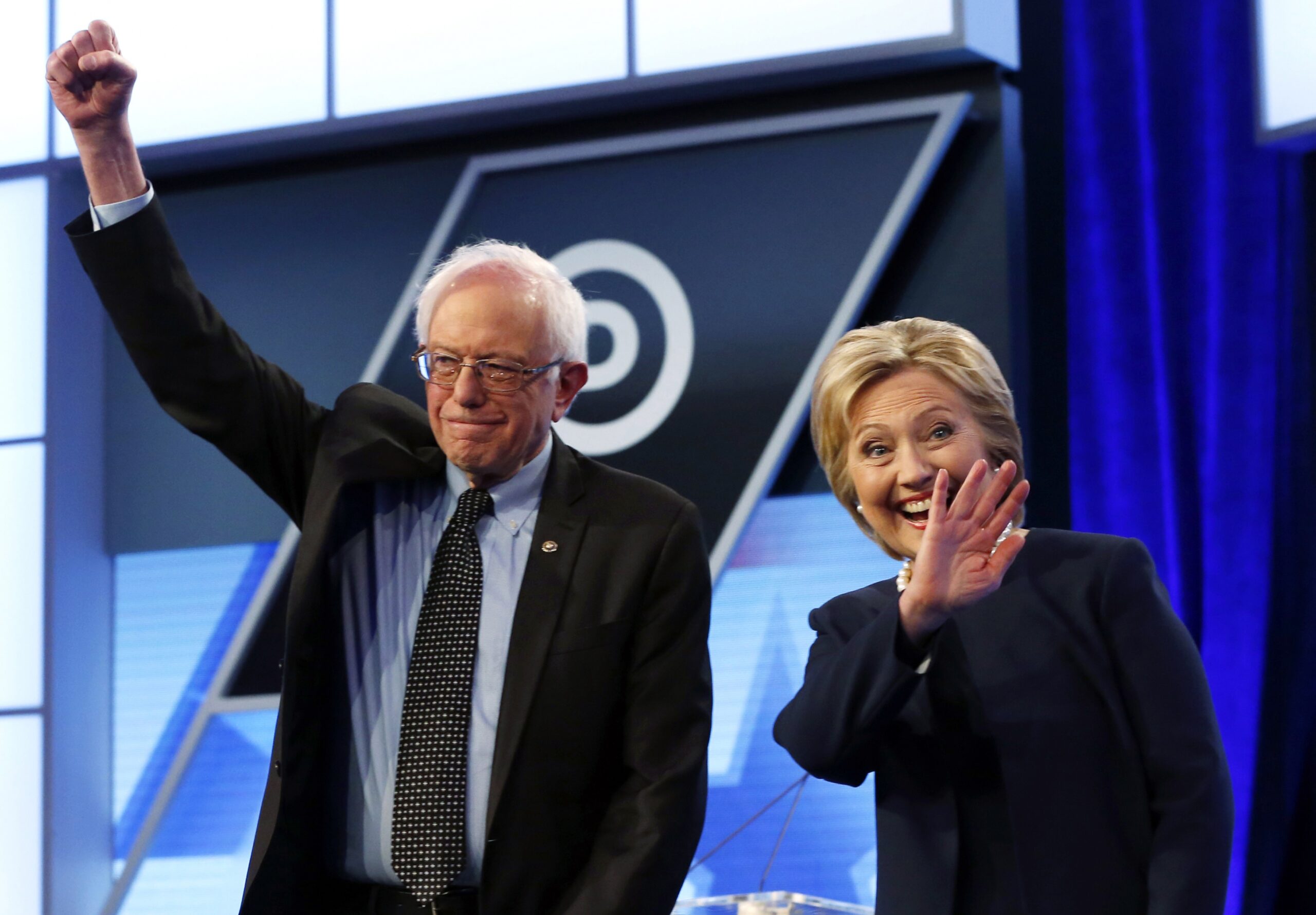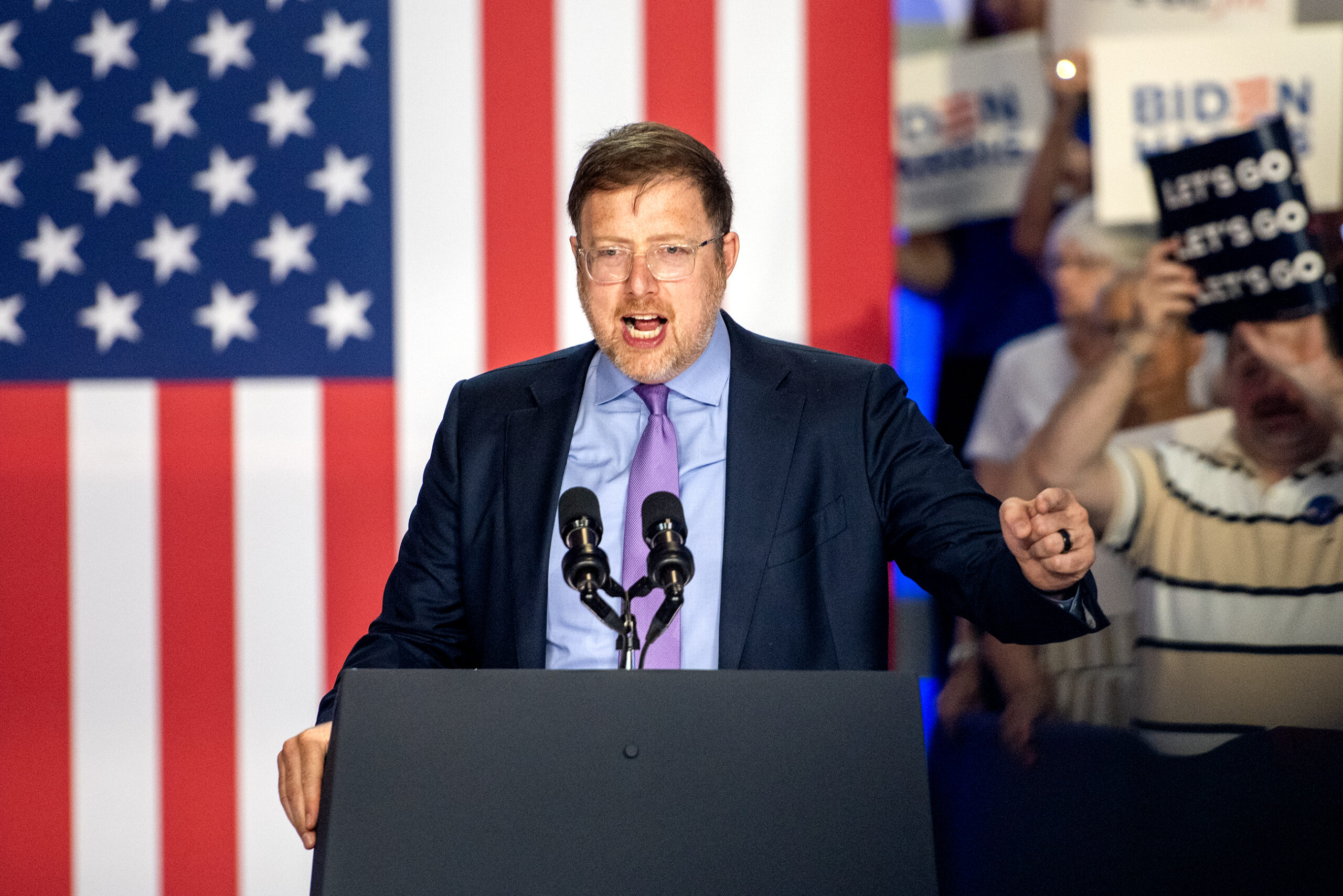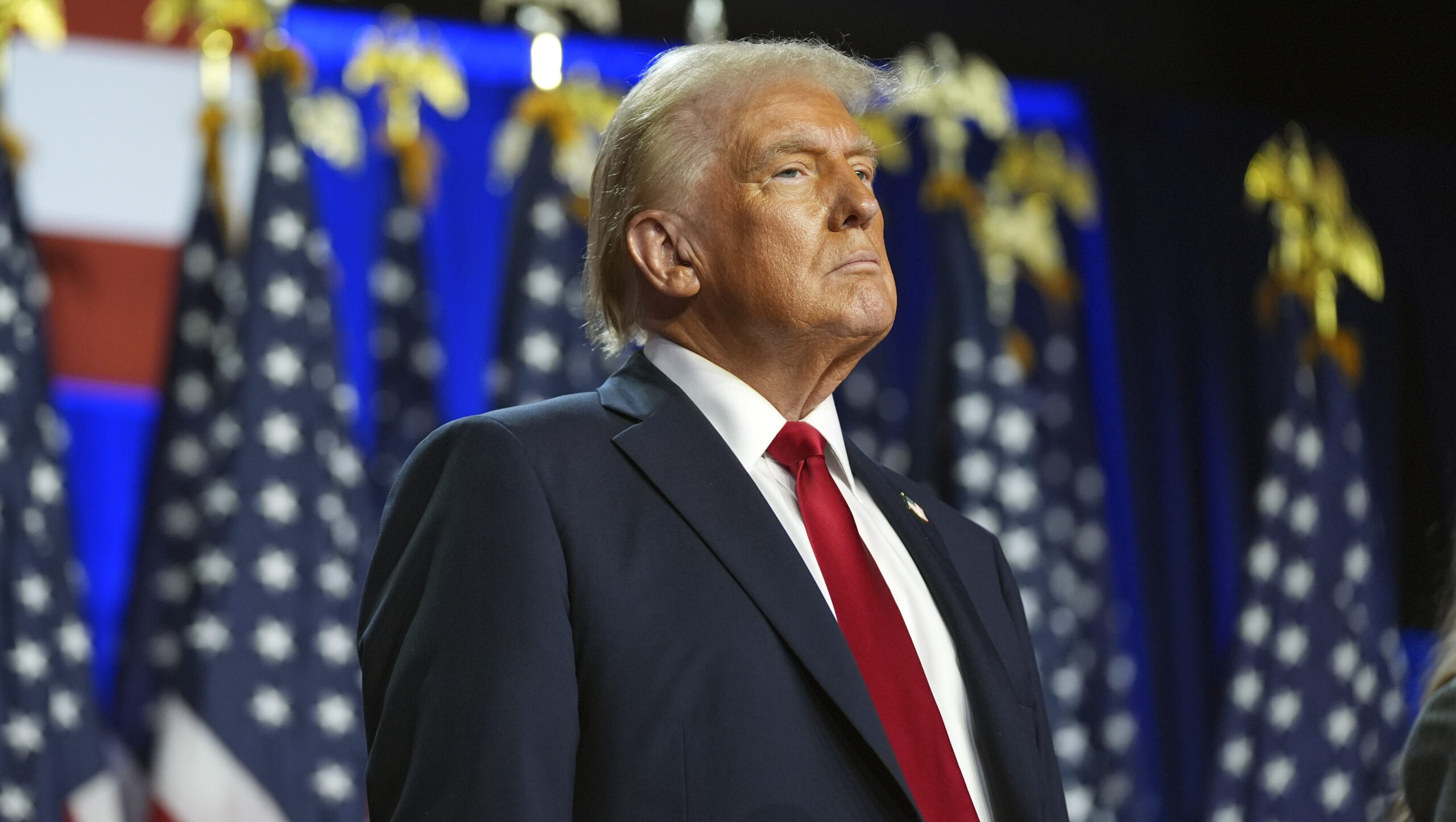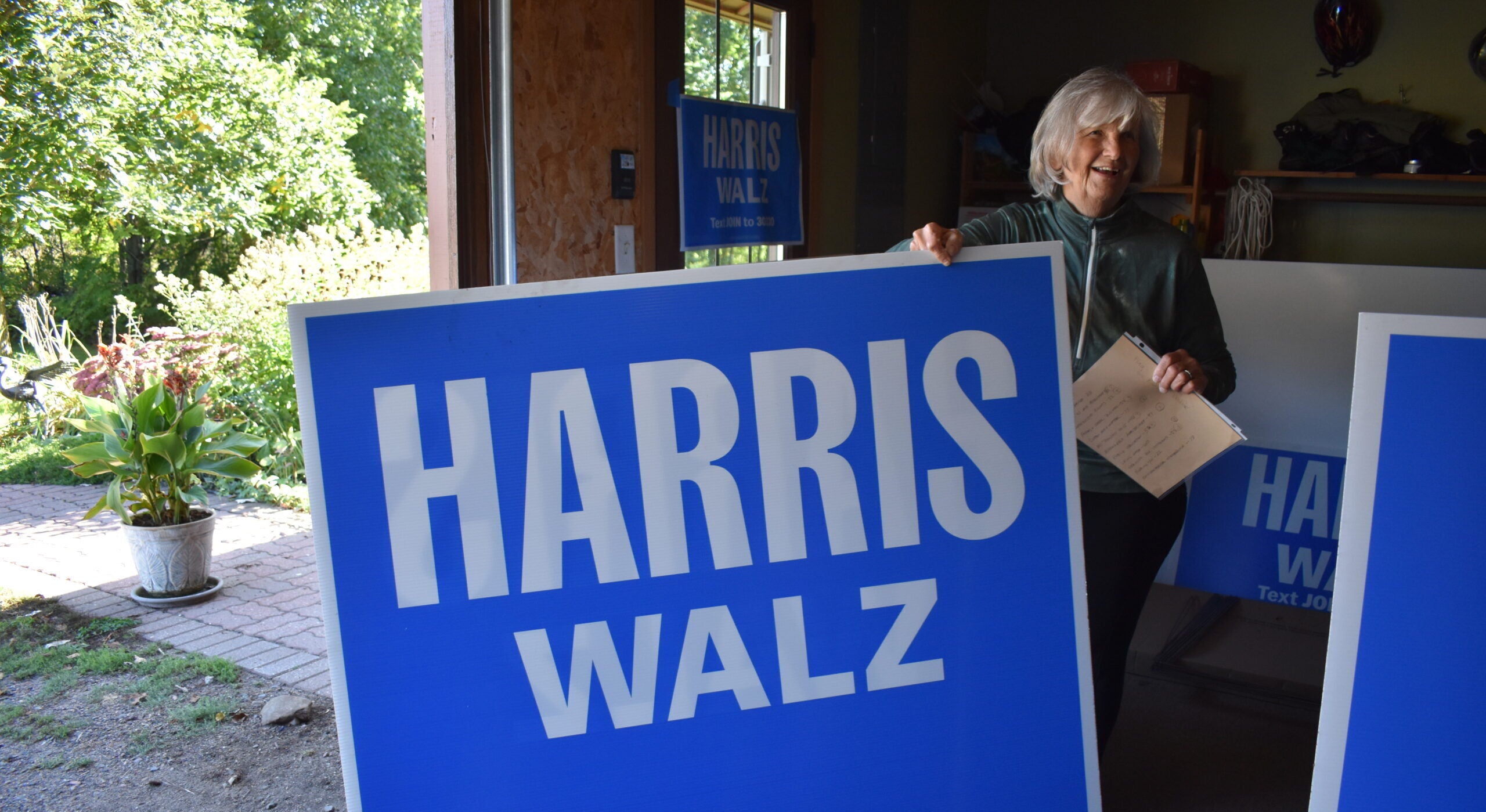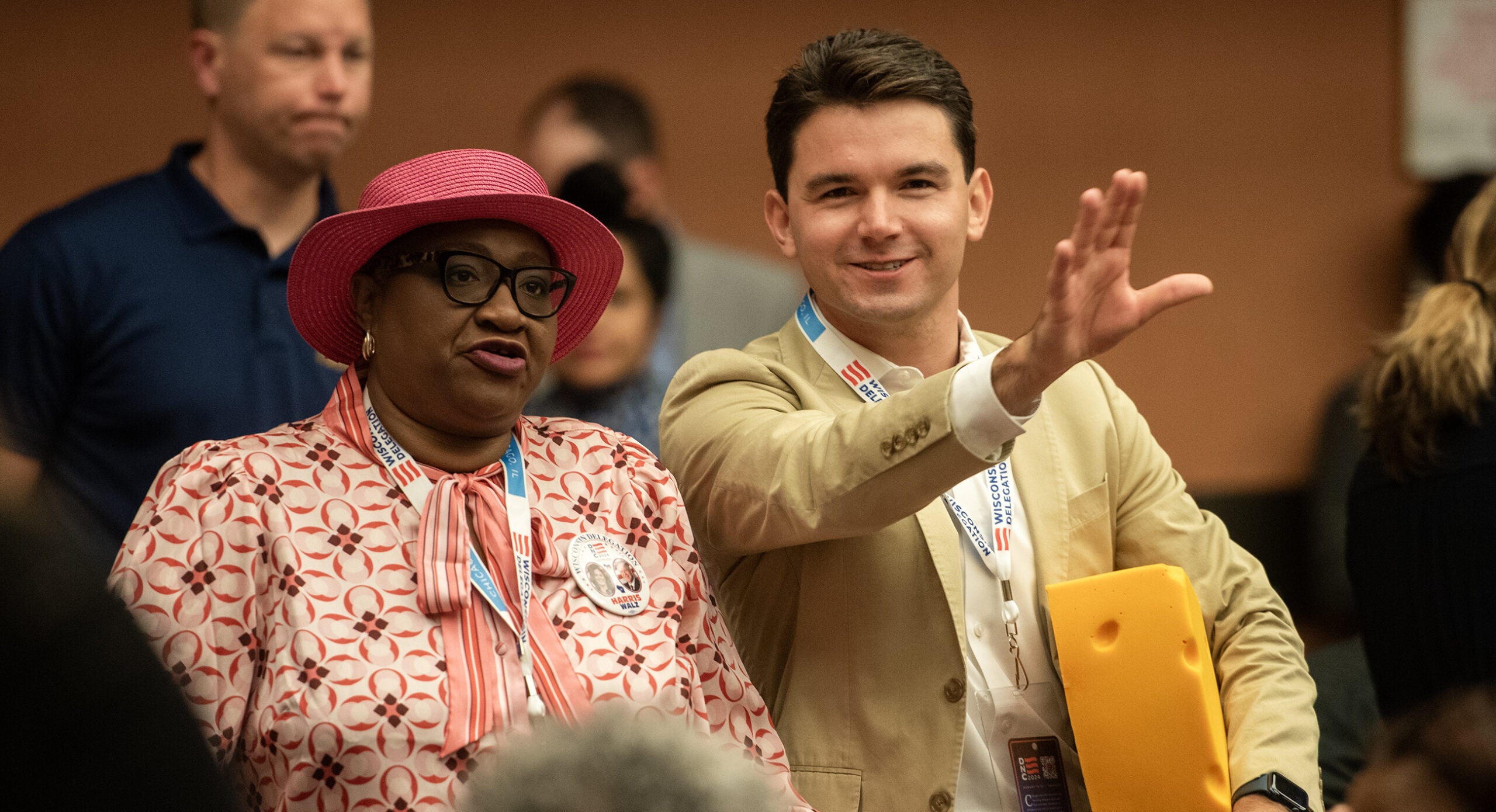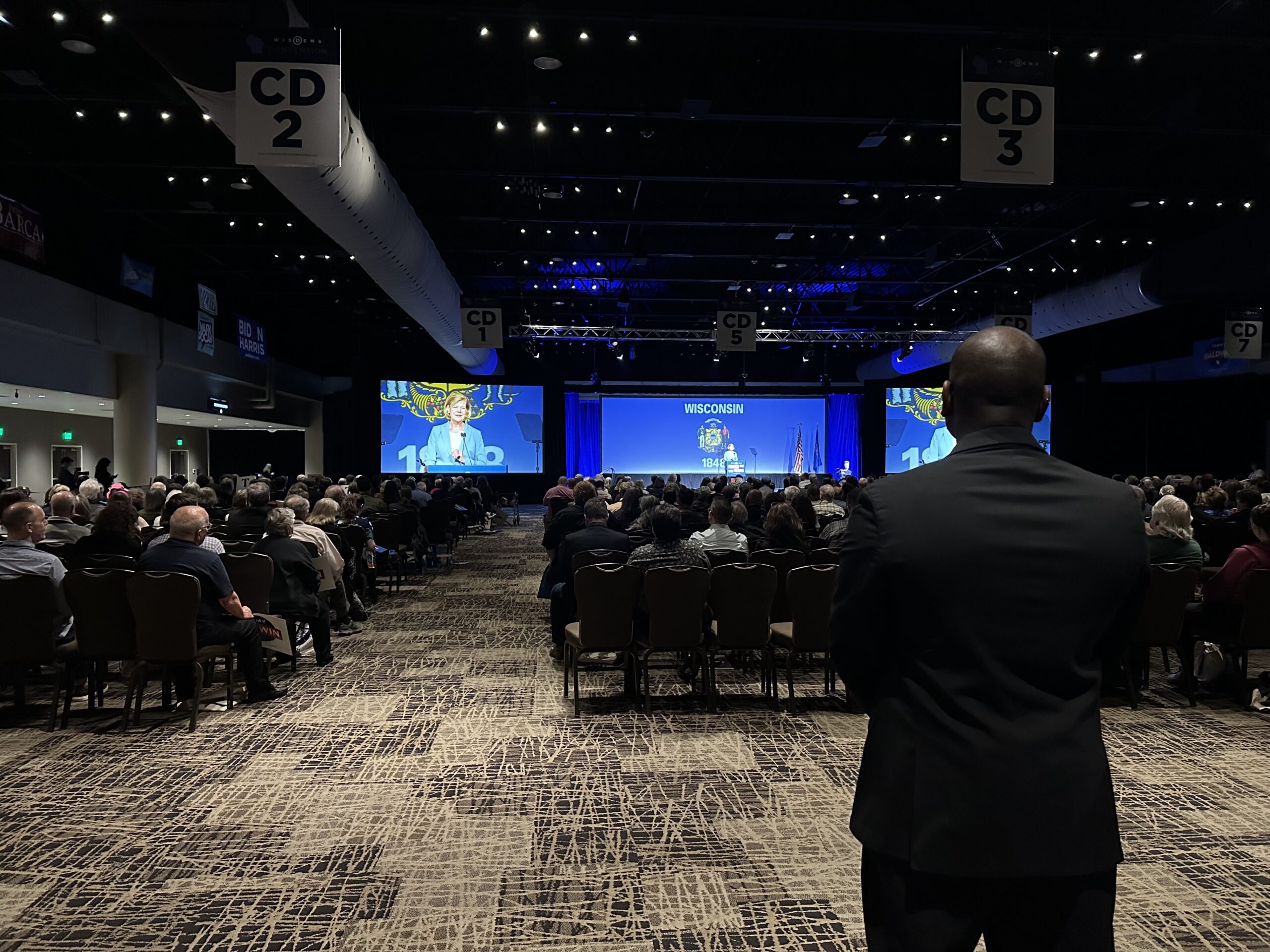Wisconsin Democrats have passed a resolution on Saturday that calls on the national Democratic Party to either end superdelegates or restrict their ability to back the candidates they choose in presidential primaries.
Superdelegates are Democratic members of Congress, state party leaders and other prominent Democrats. Under Democratic Party rules that have stood for decades, superdelegates are allowed to pledge their support for the candidate of their choice, regardless of primary election results.
The non-binding resolution approved at the Wisconsin Democratic Party Convention in Green Bay on Saturday calls on the national party to either end superdelegates or divvy them up proportionally.
Stay informed on the latest news
Sign up for WPR’s email newsletter.
It was pushed by supporters of Vermont U.S. Sen. Bernie Sanders who are upset that superdelegates have sided overwhelmingly with former Secretary of State Hillary Clinton, in many cases vowing to support her even before their states vote.
“The idea that one person’s voice matters more than another person’s voice or that one group of people should have more influence than another group of people is fundamentally at odds with the bedrock principles of democracy,” said Sanders supporter David Palmer during debate on the resolution.
“I don’t want insiders to decide what’s going on,” said Sanders supporter Jim Carpenter. “I want the party electorate to decide what’s going on.”
The advisory resolution also called on Wisconsin’s superdelegates to support Clinton and Sanders in proportion to Wisconsin’s primary results. Because Sanders won Wisconsin’s primary with roughly 57-percent of the vote, he’d receive six superdelegates and Clinton would receive four.
As it stands, six of Wisconsin’s 10 superdelegates announced before Wisconsin’s primary that they would support Hillary Clinton. They include U.S. Sen. Tammy Baldwin, U.S. Reps. Gwen Moore and Ron Kind, and DNC members Christine Bremer Muggli, Michael Childers and Martha Love.
One Wisconsin superdelegate, state Rep. David Bowen, announced after the primary that he would support Sanders. Wisconsin’s three other superdelegates have not said who they support.
Some Sanders backers ultimately got less than what they wanted at the convention. They’d hoped for a resolution calling for the outright elimination of superdelegates by 2020. The version that passed would preserve them as an option. Either way, the state party can only give advice on issues like these, and it would be up to the national party to act.
While other state party conventions have provoked clashes between Clinton and Sanders supporters, Wisconsin’s convention was tame. During Friday night’s speeches, Democratic leaders went to great pains to praise both candidates equally, saving their venom for likely Republican presidential nominee Donald Trump.
During the debate on Saturday, there was no shouting, and no delegates spoke against the superdelegate resolution.
Wisconsin Public Radio, © Copyright 2025, Board of Regents of the University of Wisconsin System and Wisconsin Educational Communications Board.
